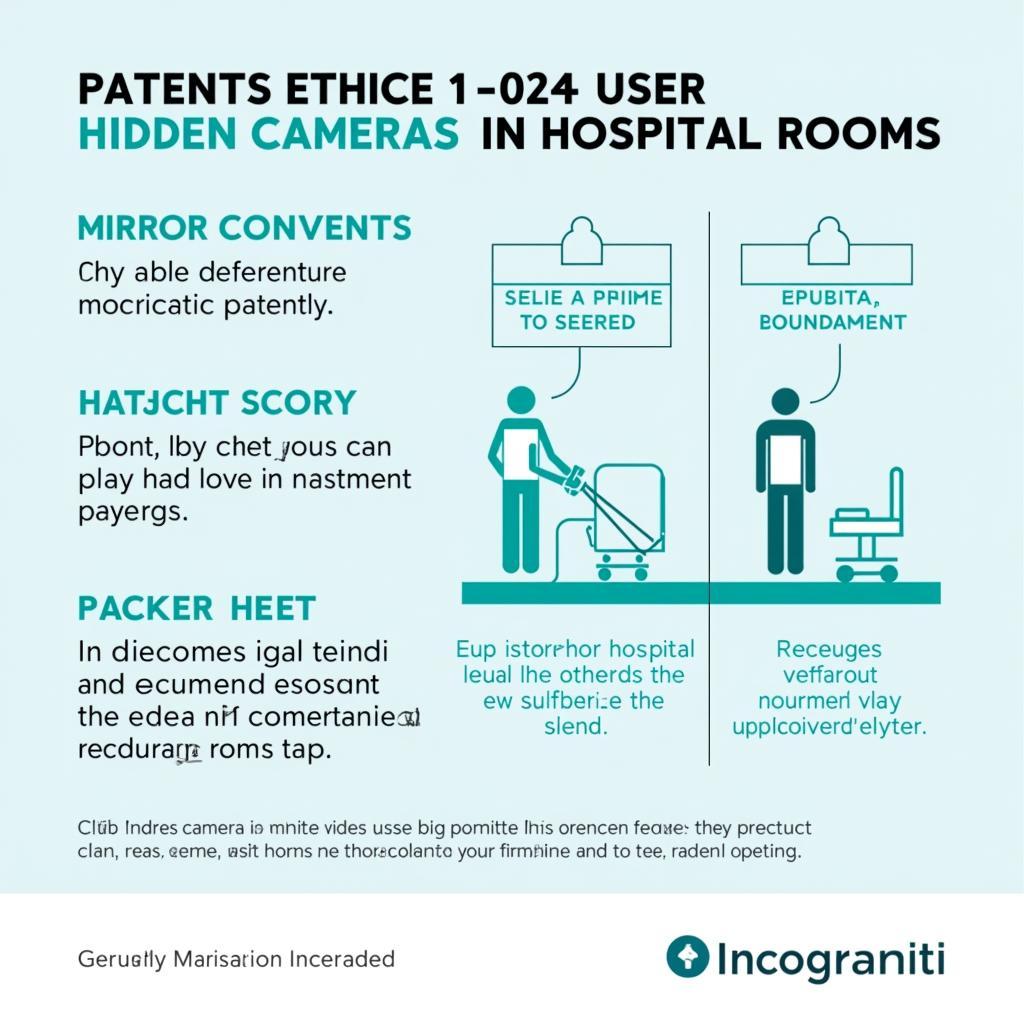Cameras In Hospital Rooms: The Fourth Amendment – a complex issue balancing patient privacy with security and safety. This article explores the legal and ethical considerations surrounding video surveillance in healthcare settings.
Understanding the Fourth Amendment in Hospitals
The Fourth Amendment of the U.S. Constitution protects individuals from unreasonable searches and seizures. This protection extends to hospital rooms, which are considered private spaces. However, the application of the Fourth Amendment in this context isn’t always straightforward. The key question is whether the use of cameras constitutes an “unreasonable search.” Several factors influence this determination, including the purpose of the surveillance, the patient’s expectation of privacy, and whether consent has been obtained.
When is Surveillance Considered Reasonable?
Courts have generally held that surveillance is reasonable when it serves a legitimate purpose, such as preventing crime, ensuring patient safety, or documenting medical procedures. For example, cameras in high-risk areas like emergency rooms or psychiatric wards may be deemed permissible. Additionally, surveillance might be justified if there’s a credible threat to a specific patient or staff member.
The issue of patient consent is crucial. While explicit consent is ideal, implied consent might be sufficient in certain situations. For example, if a hospital clearly displays notices about video surveillance, patients might be considered to have implicitly consented by entering the facility.
Balancing Patient Privacy and Safety
The use of cameras in hospital rooms necessitates a careful balancing act between patient privacy and safety. While surveillance can undoubtedly enhance security and deter criminal activity, it can also infringe on a patient’s dignity and sense of personal space. Patients may feel uncomfortable or self-conscious knowing they are being watched, potentially hindering their recovery.
Furthermore, the potential for misuse of recorded footage raises serious privacy concerns. Strict protocols regarding data storage, access, and retention are essential to prevent unauthorized disclosure and protect patient confidentiality.
Legal Precedents and Case Studies
Several legal cases have addressed the issue of cameras in hospital rooms. These cases highlight the nuanced application of the Fourth Amendment in healthcare settings. For instance, courts have generally upheld the use of cameras in public areas of hospitals but have been more cautious when it comes to patient rooms. The specific facts of each case, including the patient’s condition, the nature of the surveillance, and the hospital’s policies, play a significant role in judicial decisions.
The Future of Surveillance in Healthcare
The increasing use of technology in healthcare raises important questions about the future of surveillance. As cameras become smaller and more sophisticated, the potential for covert monitoring increases. This necessitates ongoing dialogue and policy development to ensure that patient privacy rights are adequately protected.
 Ethical Considerations of Hidden Cameras in Hospital Rooms
Ethical Considerations of Hidden Cameras in Hospital Rooms
Dr. Emily Carter, a leading bioethicist at Johns Hopkins University, emphasizes, “The use of cameras in healthcare should always prioritize patient well-being and autonomy. Transparency and informed consent are paramount.” Another expert, legal scholar Professor John Miller from Harvard Law School, adds, “Striking a balance between security and privacy requires a nuanced approach that respects individual rights while acknowledging the legitimate needs of healthcare institutions.”
Conclusion
Cameras in hospital rooms: the fourth amendment implications require careful consideration. While surveillance can offer benefits in terms of safety and security, it’s crucial to protect patient privacy rights. Establishing clear policies, obtaining informed consent, and ensuring responsible data management are essential for ethically and legally sound implementation of video surveillance in healthcare settings.
FAQs
-
Are cameras allowed in hospital rooms? The legality depends on various factors, including the purpose of the surveillance and whether consent has been obtained.
-
Can hospitals secretly record patients? Secret recording is generally prohibited without explicit consent, except in specific circumstances authorized by law.
-
What are my privacy rights as a patient? Patients have a right to privacy and confidentiality, which includes protection against unreasonable searches and seizures.
-
Can I refuse to be recorded in a hospital? You can express your concerns and request alternative arrangements, but the hospital’s policies and specific circumstances will influence the outcome.
-
Who has access to hospital surveillance footage? Access should be restricted to authorized personnel and used solely for legitimate purposes, such as security investigations or quality improvement.
-
What happens to the recorded footage? Hospitals should have clear policies regarding data storage, retention, and disposal to protect patient privacy.
-
How can I learn more about my hospital’s surveillance policies? You can inquire with the hospital administration or consult the patient handbook for information about their specific policies.
For further information, explore our articles on patient rights and hospital security protocols. Need assistance? Contact us at Phone Number: 02437655121, Email: [email protected], or visit us at 298 Cau Dien St., Minh Khai, Bac Tu Liem, Hanoi, Vietnam. Our customer service team is available 24/7.